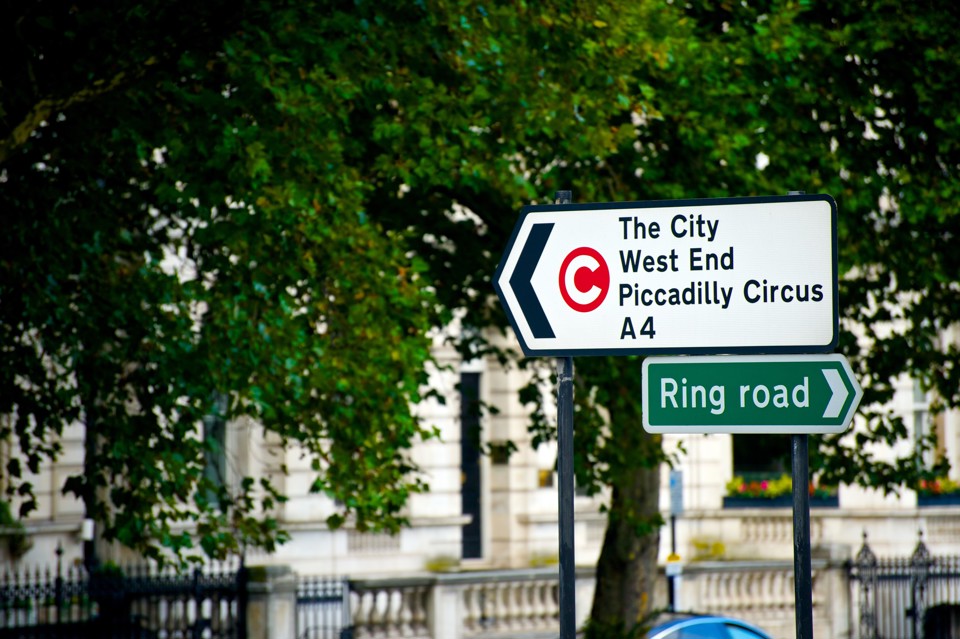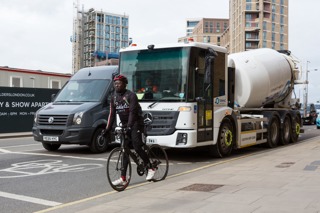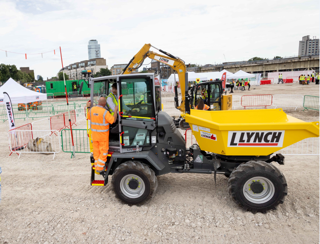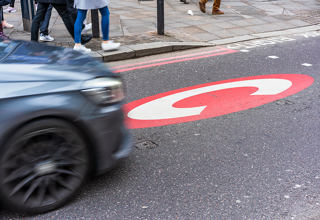A 30% hike in the congestion charge introduced by Transport for London (TfL) will apply from 7am to 10pm, seven days a week, from today (Monday, June 22).
Drivers will have to pay £15, rather than the current £11.50, to enter the congestion zone, while its hours of operation are being extended by four hours a day and will now also apply at weekends, for the first time.
The ‘temporary’ price increase is being brought in as a result of a funding agreement between the Government and TfL.
It secured a £1.6 billion bailout from the Government after warning it could have to cut services.
TfL had suspended the congestion charge and fees for the Ultra-Low Emission Zone (ULEZ) during the coronavirus outbreak to ensure London's critical workers are able to travel round London in the way that best suits them. Both charges were re-introduced from Monday, May 18.
The latest data from TfL shows that even with the congestion charge back in place and many people still working from home, there are as many cars in the zone as there were before the lockdown began.
Analysis indicates that as the Government further eases lockdown restrictions, if those who would have used public transport instead choose to drive, car traffic levels in central London could double without any changes to the congestion charge, claims TfL.
Alex Williams, TfL’s director of city planning, said: "We are already seeing a surge in traffic and need to act now to stop the city grinding to a halt.”
Drivers are also seeing road space redistributed in the capital as it tries to encourage more active travel options, such as cycling and walking.
City transport systems are being re-imagined for life after lockdown. Find out how in the latest digital edition of Fleet News by clicking here and what impact it could have on fleet operators by clicking here.
The Mayor of London, Sadiq Khan, said: "I am determined to ensure that we emerge from this pandemic with a cleaner, greener and more sustainable transport system.
"The reality is that due to social distancing requirements public transport can only carry a fraction of the number of passengers compared to pre-pandemic levels - even when we are back to running completely full services.
"While capacity on the network needs to be preserved for those people who need it most, we can’t allow journeys that were previously taken on public transport to be replaced with car trips.”
Khan highlighted how TfL’s Streetspace plan has already given 19,000m2 of additional road space for walking and cycling.
Natalie Chapman, head of urban policy at the Freight Transport Association (FTA), said: “The suspension of the congestion charge back in March 2020 was extremely welcome in helping operators focus on dealing with the crisis.
“However, to reward this hard work – completed under very challenging circumstances – with such abrupt and significant changes to the London congestion charge is extremely disappointing.”
Like many other sectors, logistics is suffering financially from the pandemic – 76% of respondents to an FTA survey report a general business downturn.
Chapman says increasing the scheme’s rates and extending its operating hours so “abruptly” will be detrimental to business recovery.
“While FTA understands the financial pressures TfL is currently facing and supports the broad intention behind the scheme – to manage congestion and improve air quality in the capital by incentivising active travel over vehicle use – logistics businesses have little alternative but to drive in London to meet the delivery needs of consumers and businesses, so this simply amounts to a tax on deliveries.
“FTA is also disappointed by the lack of consultation on such a significant decision, and, although the changes are only temporary, TfL has given no concrete indication of how long they will last. Permanent implementation should be out of the question.”






















Login to comment
Comments
No comments have been made yet.